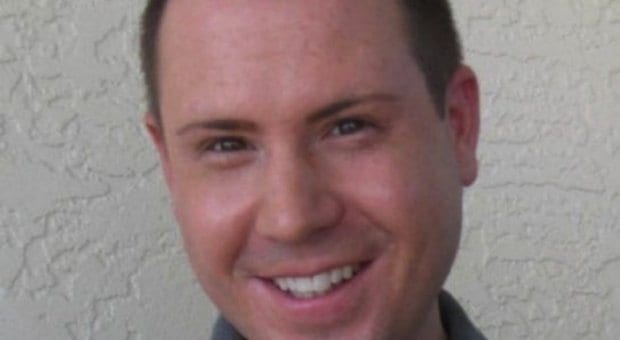A predictable deluge of homophobic remarks flooded social media last month when George Smitherman’s husband, Christopher Peloso, was reported missing and eventually dead.
But unpredictably, a group of Twitter users lashed out at those who posted offensive comments. They challenged those who tweet anonymously and exposed others by cross-checking their online presence.
“It was an impulse decision to start retweeting,” Adam Goldenberg says. The former Liberal Party speechwriter, who is now completing a Yale University fellowship, says he thought sunlight was the best disinfectant.
“I saw despicable and hateful remarks and thought people should see the filth that’s out there.”
Goldenberg and his followers asked people behind anonymous accounts to identify themselves. They then found information on other social media platforms and asked the Twitter users whether they’d repeat their comments to colleagues and family.
One man suggested George Smitherman should have used a tracking device on his husband. He turned out to be a Cornwall high school teacher.
Another man using an alias suggested Smitherman’s children lived “in a drug den” and repeatedly made graphic references to anal sex.
Twitter users noticed that another man works for a recycling company whose clients include the University of Ottawa. When Goldenberg asked him if his employer would appreciate his tweets, the man suggested Goldenberg find out “next time you are in the steam bath at the glory hole.”
Detractors accused Goldenberg and his followers of a McCarthy-style witch hunt, but he sees it as exposing online trolls. Some stopped tweeting hateful remarks or closed their accounts.
“I think it was a victory; not because of censorship, but because they thought about what they were doing,” says Goldenberg, who challenged anonymity in a Maclean’s blog post.
He was particularly unimpressed by Sun News Network personalities Michael Coren and Ezra Levant. Hours after Peloso’s death was announced, both began questioning whether Smitherman and Peloso were fit parents and accused the media of preferential treatment.
“These people had chosen this moment of tragedy and anguish for one family to start asking these things,” Goldenberg says. “These words are not innocuous; they hurt real people.”
Multiple sites now aggregate hate speech on social media. Blogs like Public Shaming regularly capture racist postings, as when an Indian-American selected as Miss America was called a terrorist. Meanwhile, the Twitter account @homophobes retweets derogatory comments, imploring people to think before tweeting.
As of Jan 6, Goldenberg is still receiving messages of support from Peloso’s friends as well as angry anonymous feedback.
“In public you would not say these things on the subway while Christopher Peloso’s missing. You would not say those things because your boss could hear or your friend’s kids,” he says. “Online, things are different, but that doesn’t mean you have to stop being a human being.”

 Why you can trust Xtra
Why you can trust Xtra


